Proprio a causa della mia insana tendenza ad accettare prestiti da ogni dove, mi ritrovo ora con una lista infinita di letture e una fila di amici impazienti di riavere i propri volumi indietro!
Perciò, la solenne risoluzione del mese è: entro la fine dell'anno e l'inizio dell'anno prossimo cercherò di sgarrare il meno possibile e di leggere esclusivamente i libri che ho ricevuto in prestito. Ce la farà la nostra eroina?!Ho perciò deciso di dedicare questo mio post ai futuri libri che mi vedrete leggere nei prossimi mesi, così da aumentare un po' la vostra curiosità e aspettative!
Aléxandros: la trilogia (Valerio Massimo Manfredi)
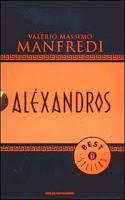 Conquistò un impero enorme, toccando i confini del mondo allora conosciuto. Ma chi era davvero Alessandro, il giovane re macedone considerato un dio dai suoi contemporanei? Questa trilogia ci porta nel cuore della sua avventura: dall'infanzia, segnata dall'assassinio del padre Filippo, al patto di sangue con i più fedeli compagni; dai presagi sul suo grande destino fino alla conquista dell'Asia, un'impresa impensabile per un greco del IV secolo a.C. Lo vediamo marciare, combattere, amare. Lo accompagniamo nello svolgersi di una vita irripetibile e favolosa. E siamo con lui quando il suo sogno sembra infrangersi di fronte al termine del viaggio, al confine estremo della terra.
Conquistò un impero enorme, toccando i confini del mondo allora conosciuto. Ma chi era davvero Alessandro, il giovane re macedone considerato un dio dai suoi contemporanei? Questa trilogia ci porta nel cuore della sua avventura: dall'infanzia, segnata dall'assassinio del padre Filippo, al patto di sangue con i più fedeli compagni; dai presagi sul suo grande destino fino alla conquista dell'Asia, un'impresa impensabile per un greco del IV secolo a.C. Lo vediamo marciare, combattere, amare. Lo accompagniamo nello svolgersi di una vita irripetibile e favolosa. E siamo con lui quando il suo sogno sembra infrangersi di fronte al termine del viaggio, al confine estremo della terra. Il petalo cremisi e il bianco (Michel Faber)
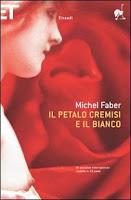 Londra 1875. Dall'esile candela della sua stanza nel bordello della terribile Mrs. Castaway, Sugar, una prostituta di diciannove anni, la più desiderata in città, cerca la via per sottrarre il proprio corpo e l'anima al fango delle strade. Dai vicoli luridi e malfamati Michel Faber ci guida, seguendo la scalata di Sugar, fino allo splendore delle classi alte della società vittoriana, dove violiamo l'intimità di personaggi terribili e fragili, comunque indimenticabili. Come Rackam, il giovane erede di una grande fortuna che diverrà l'amante di Sugar, e sua moglie, l'angelica e infelice Agnes.
Londra 1875. Dall'esile candela della sua stanza nel bordello della terribile Mrs. Castaway, Sugar, una prostituta di diciannove anni, la più desiderata in città, cerca la via per sottrarre il proprio corpo e l'anima al fango delle strade. Dai vicoli luridi e malfamati Michel Faber ci guida, seguendo la scalata di Sugar, fino allo splendore delle classi alte della società vittoriana, dove violiamo l'intimità di personaggi terribili e fragili, comunque indimenticabili. Come Rackam, il giovane erede di una grande fortuna che diverrà l'amante di Sugar, e sua moglie, l'angelica e infelice Agnes.Il lettore è costantemente dietro la spalla di Sugar e degli altri protagonisti, catturato da una scrittura che ha la magia di ricreare in ogni dettaglio strade, camere, vestiti, cibi, odori, sapori. Un critico ha scritto (su Time) che «questo libro è ancora meglio del sesso». Certo nessun altro libro dà alla lettura una tale emozione erotica, che ne fa un'opera unica, un romanzo dal fascino universale e senza tempo.
Autostop con Buddha (Will Ferguson)
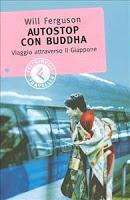 Un abile scrittore rievoca il suo viaggio in Giappone, seguendo gli itinerari più inconsueti. Se ne ricava un'immagine nitida e vera, ricca di inquietudini, squilibri, contraddizioni. Ma c'è anche il vivido racconto di un'esperienza fatta di incontri, di persone, di caratteri indimenticabili.
Un abile scrittore rievoca il suo viaggio in Giappone, seguendo gli itinerari più inconsueti. Se ne ricava un'immagine nitida e vera, ricca di inquietudini, squilibri, contraddizioni. Ma c'è anche il vivido racconto di un'esperienza fatta di incontri, di persone, di caratteri indimenticabili.L'autore mostra una speciale maestria nella rappresentazione dei tratti psicologici oltre che nella descrizione suggestiva e attenta dei paesaggi e degli stili di vita. Raramente la letteratura di viaggio ha saputo entrare così a fondo e con tanta garbata e partecipe ironia nell'intimo delle persone. Qui, infatti, non ci sono solo scenari, cronache, macrostorie. Will Ferguson è anche un esploratore di interni, un geografo della quotidianità e, in questo particolarissimo modo di rievocare il suo viaggio, rivela ancora una volta la sua grande vena di affabulatore e narratore.
De Profundis (Oscar Wilde)
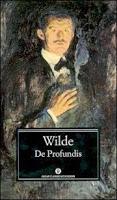 L'uomo che teorizzò la maschera come unica fonte di attendibilità e che amava ripetere «vivo nel terrore di non essere frainteso»; il decadente che esaltò la critica come la forma più alta di autobiografia... Oscar Wilde, insomma, non avrebbe mai pensato di presentarsi al pubblico con un documento di esistenza vissuta come la straordinaria lettera privata scritta in carcere al giovane Lord Alfred Douglas, cui imputare la sua rovina... Douglas, con cui Wilde una volta uscito di prigione non tardò a riunirsi, dichiarò anni dopo di non averla mai ricevuta; e per la verità ne conobbe il testo integrale dopo la morte dell'amico, e in circostanza assai sgradevoli (al mondo non sarebbe stato rivelato che nel 1960). In una versione dimezzata e censurata da Robbie Ross, esecutore letterario di Wilde che le aveva dato il titolo sotto cui è nota ancora oggi, De Profundis aveva frattanto trovato infiniti lettori, guadagnandosi una fama superiore a quella di qualsiasi altra epistola nei nostri tempi. La versione completa contiene tutto Wilde: la sua eloquenza, la sua cultura sterminata quanto puntuale, soprattutto il suo inimitabile senso dello stile; ma anche le debolezze, gli slanci, le passioni, che dandole una dimensione umana finiscono per confermare l'imperitura vitalità di un personaggio emblematico della cultura moderna.
L'uomo che teorizzò la maschera come unica fonte di attendibilità e che amava ripetere «vivo nel terrore di non essere frainteso»; il decadente che esaltò la critica come la forma più alta di autobiografia... Oscar Wilde, insomma, non avrebbe mai pensato di presentarsi al pubblico con un documento di esistenza vissuta come la straordinaria lettera privata scritta in carcere al giovane Lord Alfred Douglas, cui imputare la sua rovina... Douglas, con cui Wilde una volta uscito di prigione non tardò a riunirsi, dichiarò anni dopo di non averla mai ricevuta; e per la verità ne conobbe il testo integrale dopo la morte dell'amico, e in circostanza assai sgradevoli (al mondo non sarebbe stato rivelato che nel 1960). In una versione dimezzata e censurata da Robbie Ross, esecutore letterario di Wilde che le aveva dato il titolo sotto cui è nota ancora oggi, De Profundis aveva frattanto trovato infiniti lettori, guadagnandosi una fama superiore a quella di qualsiasi altra epistola nei nostri tempi. La versione completa contiene tutto Wilde: la sua eloquenza, la sua cultura sterminata quanto puntuale, soprattutto il suo inimitabile senso dello stile; ma anche le debolezze, gli slanci, le passioni, che dandole una dimensione umana finiscono per confermare l'imperitura vitalità di un personaggio emblematico della cultura moderna.Il mestiere di scrivere (Raymond Carver)
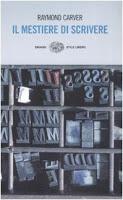 L'insegnamento della scrittura creativa è stato per Raymond Carver qualcosa di piú che un modo per guadagnarsi da vivere: cominciò negli anni '70 a tenere le sue memorabili lezioni di Creative Writing - in un periodo segnato dalla devastazione dell'alcolismo - e quelle lezioni oltre a dare origine a una vera e propria tendenza letteraria furono per Carver un modo per riflettere sul senso del narrare e per confrontarsi con i grandi scrittori suoi maestri - da Cechov a Hemingway -, in particolare sulla forma della short-story.
L'insegnamento della scrittura creativa è stato per Raymond Carver qualcosa di piú che un modo per guadagnarsi da vivere: cominciò negli anni '70 a tenere le sue memorabili lezioni di Creative Writing - in un periodo segnato dalla devastazione dell'alcolismo - e quelle lezioni oltre a dare origine a una vera e propria tendenza letteraria furono per Carver un modo per riflettere sul senso del narrare e per confrontarsi con i grandi scrittori suoi maestri - da Cechov a Hemingway -, in particolare sulla forma della short-story.Curato dal biografo americano di Carver e da uno dei suoi traduttori, Il mestiere di scrivere raccoglie brevi saggi, note e articoli che hanno come tema la letteratura e il suo insegnamento.
Completa il volume una sezione di Cinquanta esercizi di scrittura creativa con l'indicazione dei racconti nei quali Carver 'svolge' il tema proposto nell'esercizio.
Le quattro casalinghe di Tokyo (Natsuo Kirino)
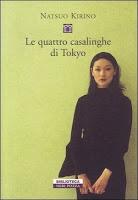 La pazienza di Yaoyoi, della dolce e graziosa Yaoyoi,si è rotta oggi improvvisamente come un filo. Nell'ingresso di casa, davanti alla faccia insopportabilmente insolente di Kenji, il marito che ha dilapidato tutti i suoi risparmi, Yaoyoi si è tolta la cinghia dei pantaloni e l'ha stretta intorno al collo del disgraziato. Kenji ha tentato di afferrare la cintura, ma non ne ha avuto il tempo. La cinghia gli è penetrata subito nella carne.
La pazienza di Yaoyoi, della dolce e graziosa Yaoyoi,si è rotta oggi improvvisamente come un filo. Nell'ingresso di casa, davanti alla faccia insopportabilmente insolente di Kenji, il marito che ha dilapidato tutti i suoi risparmi, Yaoyoi si è tolta la cinghia dei pantaloni e l'ha stretta intorno al collo del disgraziato. Kenji ha tentato di afferrare la cintura, ma non ne ha avuto il tempo. La cinghia gli è penetrata subito nella carne.E' stato buffo vedere come il collo di Kenji si sia piegato all'indietro e le mani abbiano cominciato ad annaspare disperatamente nell'aria. Sì, buffo, veramente buffo, poiché un uomo così, un infelice che beve e gioca, non si cura dei figlia, è attratto da donne impossibili e picchia la moglie, non meritava certo di vivere!
Le gambe abbandonate storte sul pavimento di cemento dell'ingresso, accasciato sulla soglia, la testa tutta girata, Kenji, a un certo punto, non si è mosso più. Yaoyoi gli ha messo allora una mano sul collo per sentire le pulsazioni. Niente. Sul davanti dei pantaloni ha visto una macchia bagnata. E ha riso, stupefatta della forza furiosa, della crudeltà di cui era stata capace. Ha riso anche quando Masako e Yoshie, le fedeli amiche, l'hanno aiutata trasportando il cadavere a casa di Masako, tagliandolo a pezzatti e gettando poi i resti in vari bidoni dell'immondizia.
Straordinario thriller che ha per protagoniste quattro amiche (la dolce e graziosa Yaoyoi, l'intelligente e coraggiosa Masako, Yoshie, la madre angariata da una figlia capricciosa e da una suocera invalida, Kuniko, la trentenne derubata dal marito e minacciata da un usuraio) che si conoscono in una puzzolente fabbrica di cibi precotti e che scoprono insieme il gusto della rivolta e il fascino e il business del crimine, Le quattro casalinghe di Tokyo, come accade spesso nei buoni romanzi polizieschi, illumina ciò che accade in un mondo in cui la tradizione si rompe come la pazienza di Yaoyoi: improvvisamente come un filo.
Il volo delle libellule (Samantha Righi)
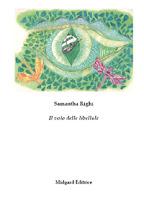 Susan, dolce e semplice ragazza di paese, si troverà in breve sbalzata in un mondo che fino a quel momento aveva creduto solo leggendario. È un mondo fantastico, popolato da creature mitologiche, al quale scopre d'appartenere da sempre. Le amiche che l'accompagneranno nel suo viaggio a bordo della Dragonfly, nave volante la cui storia era morta insieme a coloro che un tempo ne narravano le gesta, sono le fate-libellule. Il loro volo, le loro danze e i loro racconti convincono Susan a partire. Sulla nave incontrerà nuovi amici ai quali rimarrà legata per sempre. L'obiettivo della loro missione è recuperare la Fiamma della Speranza, unico oggetto in grado di risvegliare l'isola e coloro che la abitano dall'oblio al quale il male l'aveva relegata.
Susan, dolce e semplice ragazza di paese, si troverà in breve sbalzata in un mondo che fino a quel momento aveva creduto solo leggendario. È un mondo fantastico, popolato da creature mitologiche, al quale scopre d'appartenere da sempre. Le amiche che l'accompagneranno nel suo viaggio a bordo della Dragonfly, nave volante la cui storia era morta insieme a coloro che un tempo ne narravano le gesta, sono le fate-libellule. Il loro volo, le loro danze e i loro racconti convincono Susan a partire. Sulla nave incontrerà nuovi amici ai quali rimarrà legata per sempre. L'obiettivo della loro missione è recuperare la Fiamma della Speranza, unico oggetto in grado di risvegliare l'isola e coloro che la abitano dall'oblio al quale il male l'aveva relegata.The Other Hand (Chris Cleave)
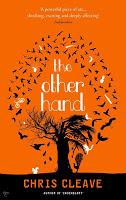 We don't want to tell you what happens in this book. It is a truly special story and we don't want to spoil it.
We don't want to tell you what happens in this book. It is a truly special story and we don't want to spoil it.Nevertheless, you need to know enough to pick it up, so we will just say this:
This is the story of two women.
Their lives collide one fateful day, and one of them has to make a terrible choice.
Two years later, they meet again-the story starts there...
Once you have read it, you'll want to tell your friends about it. When you do, please don't tell them what happens either. The magic is how it unfolds.
The Complete Novels (Jane Austen)
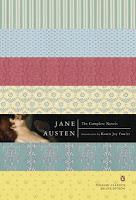 With dazzling wit and keen insight, Jane Austen chronicles the subtleties and nuances of - and the aspirations and machinations at work in - her own social milieu. Through the stories of her spirited heroins and their circles, their interactions and rituals, their movements from ballrooms to drawing rooms, from London to Bath to parklands and gardens, she recreates the English gentry life that she observed in the late eighteenth and early nineteenth centuries.
With dazzling wit and keen insight, Jane Austen chronicles the subtleties and nuances of - and the aspirations and machinations at work in - her own social milieu. Through the stories of her spirited heroins and their circles, their interactions and rituals, their movements from ballrooms to drawing rooms, from London to Bath to parklands and gardens, she recreates the English gentry life that she observed in the late eighteenth and early nineteenth centuries.Each of her novels is a story and a story about marriage - marriage for love, for financial security, for social status. But they are not romances; ironic, comic, wise and penetrating, they are brilliant portrayals of the society Jane Austen knew.
Enhanced by a fond and lively introduction by bestselling author Karen Joy Fowler (The Jane Austen Book Club), this treasure trove of seven novels is a must for every Austen fan.
Lizzie Siddal: The Tragedy of a Pre-Raphaelite Supermodel (Lucinda Hawskley)
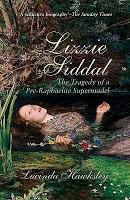 Elizabeth Siddal, poet, artist and tragic lover, rose from the obscurity of a Southwark slum to become one of the most famous faces in Victorian Britain. Even today those who do not know her name always recognize her face: she is Millais' doomed Ophelia and Rossetti's beatified Beatrice.
Elizabeth Siddal, poet, artist and tragic lover, rose from the obscurity of a Southwark slum to become one of the most famous faces in Victorian Britain. Even today those who do not know her name always recognize her face: she is Millais' doomed Ophelia and Rossetti's beatified Beatrice.From the moment Lizzie was introduced to the Pre-Raphaelite Brotherhood in 1849, her immortality was decreed - and her future doomed. The attraction between Lizzie and the young Dante Gabriel Rossetti heralded nine years of emotional agony where Lizzie waited for marriage as Rossetti veered wildly between possessive adoration for her and love affairs with others. By the time they were wed, Lizzie was depressed, unwell and addicted to laudanum. After the birth of a stillborn daughter and yet another rumoured affair, Lizzie committed suicide, aged just thirty-two. In her fascinating biography Lucinda Hawksley looks behind the celebrated muse to reveal a talented poet and artist.
American Gods (Neil Gaiman)
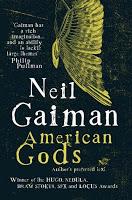 Days before his release from prison, Shadow's wife, Laura, dies in a mysterious car crash. Numbly, he makes his way back home. On the plane, he encounters the enigmatic Mr Wednesday, who claims to be a refugee from a distant war, a former god and the king of America.Together they embark on a profoundly strange journey across the heart of the USA, whilst all around them a storm of preternatural and epic proportions threatens to break.
Days before his release from prison, Shadow's wife, Laura, dies in a mysterious car crash. Numbly, he makes his way back home. On the plane, he encounters the enigmatic Mr Wednesday, who claims to be a refugee from a distant war, a former god and the king of America.Together they embark on a profoundly strange journey across the heart of the USA, whilst all around them a storm of preternatural and epic proportions threatens to break.Scary, gripping and deeply unsettling, American Gods takes a long, hard look into the soul of America. You'll be surprised by what and who it finds there...
Plays two (Howard Barker)
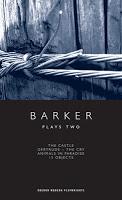 Howard Barker is one of the most significant and controversial dramatists of his time. His plays challenge, unsettle and expose. The plays in this volume examine collisions of culture, gender and creed at moments of turmoil, developing the tragic form Barker defines as Theatre of Catastrophe.
Howard Barker is one of the most significant and controversial dramatists of his time. His plays challenge, unsettle and expose. The plays in this volume examine collisions of culture, gender and creed at moments of turmoil, developing the tragic form Barker defines as Theatre of Catastrophe.The Castle is set at the end of the Crusades and describes the clashes that occur when returning soldiers bring home with them as a prisoner an Arab architect. Barker's abiding interest in interrogating the great classics for their 'silences' is shown in Gertrude - The Cry, his re-writing of the Hamlet story. Scarcely examined in Shakespeare, the passion of Gertrude for Claudius i s made the centre of this harrowing tragedy, casting new light on the personality of Hamlet himself. Animals in Paradise was commissioned by the Swedish and Danish governments to celebrate their connection by bridge, a symbolic finish to centuries of antagonism. Barker's unexpected treatment of the theme provoked unrest on its first showing. 13 Objects movingly reveals the investment we make in inanimate things, their power to unsettle us, and how their talismanic qualities license new ways of seeing the world.

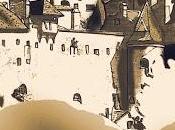
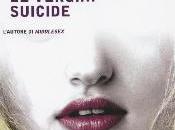

![[Rubrica: Italian Writers Wanted #11]](https://m21.paperblog.com/i/289/2894652/rubrica-italian-writers-wanted-11-L-NfHdN5-175x130.png)
